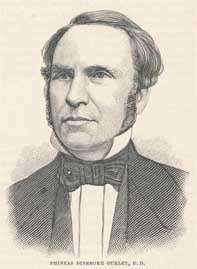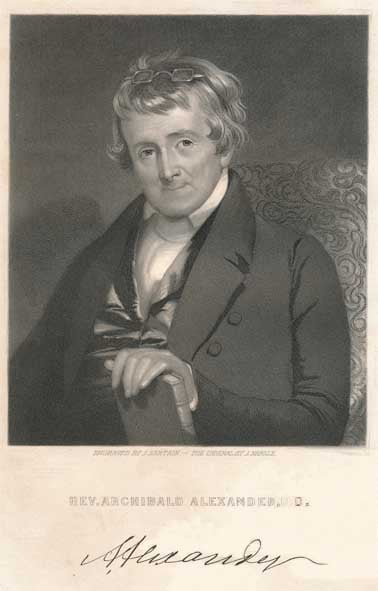This Day in Presbyterian History:
Glorifying God by Education
Quiz time! What Christian college today came about as the result of the sharing of ideas in a general store by Scots-Irish bargain hunters? Or what sports team logo came from a tornado which swept the campus in the early part of the twentieth century? If you answered Geneva College in Beaver Falls, Pennsylvania, give yourself a hand.
The year was 1836. The place was Northwood, Ohio. James Stewart Johnston was the keeper of a general store in that small town which did business with many Scots-Irish customers. Besides shopping, it was also the place to share ideas, one of which was the starting of an educational institution for the second generation. And the one who seemed best to do it was the Rev. James Black Johnston, the pastor of the Miami (of Ohio) Reformed Presbyterian church, and brother to James Steward Johnston. So on April 20, 1848, Rev. Johnston began to teach Latin to a group of seven male students. He called it Geneva Hall, so named after the city of John Calvin in Switzerland. The class became so popular at Geneva Hall that women were added to the mix shortly. Pastor Johnston had to move the location to a log house in the village of Northwood, Ohio.
Before long, the Civil War between 1861 – 1865 caused the school to close, at least briefly. But after that national struggle, some say that the school opened as a Freedman institution, in which freed blacks began to study. The very fact that the Underground Railroad operated nearby makes that story a possible reality. Soon white students were included in the mix of education.
Seeing the need to be closer to an urban center caused the school to move to Beaver Falls, Pennsylvania in 1880, close to Pittsburgh, Pennsylvania. The land was given by a German society in that area. The school’s sport teams were known, understandably as the Covenanters. The first basketball game in the country was held by Geneva College and New Brighton YMCA in 1893. It wasn’t until early in the new century that the school’s sport team names was changed to the Golden Tornado after a literal tornado swept through the campus buildings, taking the golden dome of the oldest building off with it.
What is more important than these traditional facts which every college had to one degree or another, is that this college is a Christian college, both in name as well as in reality. All of the faculty must profess that Jesus Christ is their Lord and Savior. All of the professors and lecturers of the Department of Biblical Studies must adhere to the Westminster Confession of Faith. This is the only college of the Reformed Presbyterian Church of North America. Its purpose succinctly is “to glorify God by educating and ministering to a diverse community of students for the purpose of developing servant leaders, transforming society for the kingdom of Christ.”
Words to Live By: Their stated aim in education should be the stated aim of all Christians, that is, of seeking by their words and works to transform society for the kingdom of Christ. In what way will you be accomplishing that this week? Month? Year?
Through the Scriptures: Psalm 28 – 30
Through the Standards: Justification, according to the confession of faith
WCF 11:1
“Those whom God effectually calls, He also freely justifies: not by infusing righteousness into them, but by pardoning their sins, and by accounting and accepting their persons as righteous; not for anything wrought in them, or done by them, but for Christ’s sake alone; nor by imputing faith itself, the act of believing, or any other evangelical obedience to them, as their righteousness; but by imputing the obedience and satisfaction of Christ unto them, they receiving and resting on Him and His righteousness by faith; which faith they have not of themselves, it is the gift of God.”



